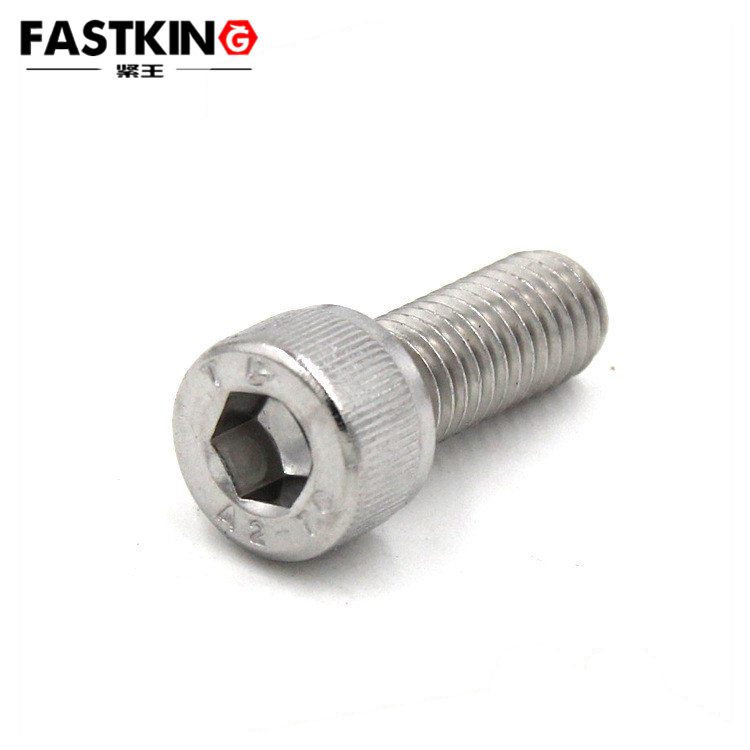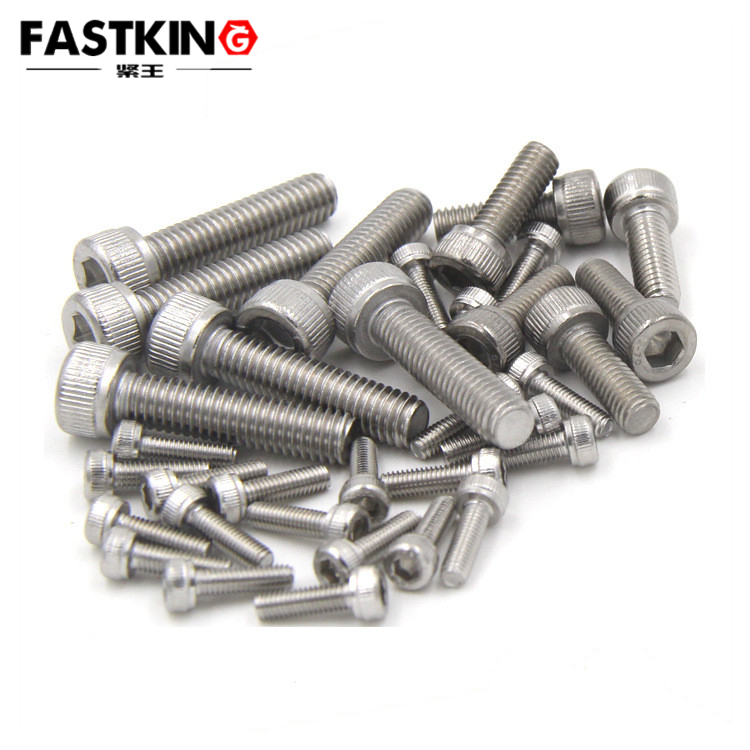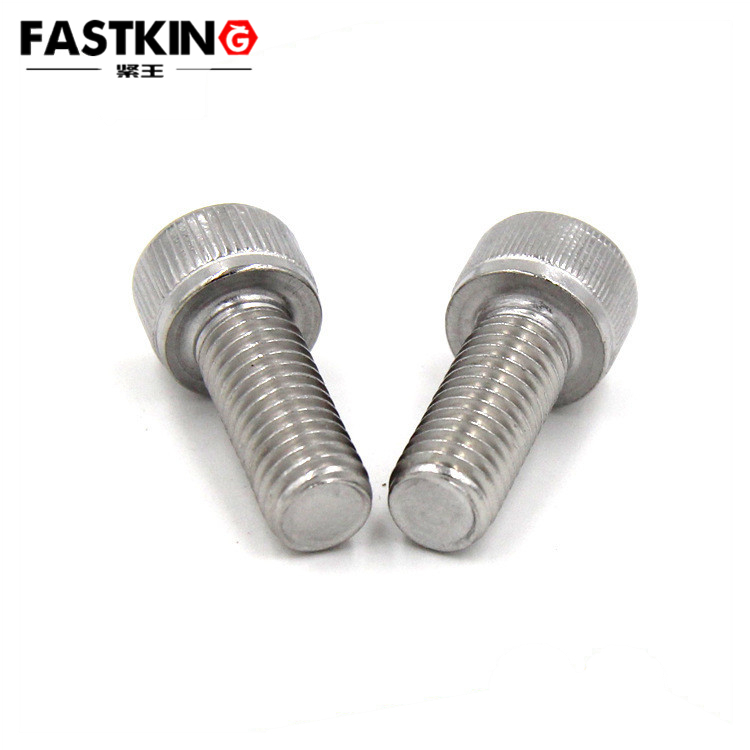Cup head hexagon screw-din912
Material: stainless steel 304316, grade 8.8 high strength and grade 12.9 high strength
Product standard: DIN912
Scope of application:
Environmental protection equipment, medical equipment, communication equipment, electric power facilities, electronic products, food machinery, petrochemical industry, ship assembly, pump valve pipeline, building curtain wall, outdoor occasions, etc.
It can also support non-standard customization.
Hex Socket Cap Screws: The "Invisible Guardians" of Precision Machinery

In the fields of precision machinery and high-end equipment manufacturing, hex socket cap screws have become indispensable key connecting components due to their unique structural design and exceptional performance. These fasteners, which combine aesthetics and functionality, achieve maximum connection strength within limited spaces, providing reliable solutions for modern mechanical manufacturing.
I. Technical Characteristics of Hex Socket Cap Screws
Hex socket cap screws are manufactured using precision cold heading processes, adhering to strict dimensional tolerances and surface treatment standards. Their cup-shaped head design is not only aesthetically pleasing but, more importantly, provides a larger bearing area, effectively distributing fastening pressure and preventing damage to the connected surfaces. The internal hexagon drive ensures higher torque transmission efficiency, making it particularly suitable for high-strength fastening applications.
In terms of material selection, hex socket cap screws are typically made from high-strength alloy steel, stainless steel, or special alloys. Through heat treatment and surface treatments (such as zinc plating, Dacromet, or nickel plating), they exhibit excellent mechanical properties and corrosion resistance. For special applications, materials like titanium alloy or copper alloy can also be used.
The specification system is well-established, covering common sizes from M3 to M20, with length ranges from 6mm to 200mm. Custom specifications can be produced to meet various engineering needs. Each specification corresponds to clear technical parameters, including tensile strength, yield strength, and hardness, ensuring reliability in use.
II. Correct Usage Methods and Key Operational Points
Tool selection is the first step in using hex socket cap screws. It is essential to use an internal hexagon wrench that perfectly matches the screw specifications. For batch assembly operations, it is recommended to use torque-controlled internal hexagon electric tools, which improve efficiency while ensuring assembly quality.

Tightening torque control directly affects connection quality. It is advisable to refer to relevant standards or the manufacturer's torque parameter table and use a torque wrench for precise control. For critical connection points, torque marking and rechecking are recommended to ensure each connection meets design requirements.
Anti-loosening measures are crucial for ensuring long-term reliability. Common methods include using spring washers, thread-locking adhesives, etc. In vibrating environments, pre-applied anti-loosening adhesive screws or special anti-loosening structural designs are recommended. Regular inspection and maintenance are also essential.
III. Typical Application Scenarios and Case Studies
In the field of precision machinery manufacturing, hex socket cap screws are widely used in CNC machine tools, semiconductor equipment, and precision instruments. For example, a brand of five-axis machining center uses over 1,000 hex socket cap screws of different specifications, ensuring the structural strength and precision stability of the equipment.
The aerospace industry is a significant application area for hex socket cap screws. From aircraft engines to spacecraft structures, these screws are ubiquitous. A certain type of aircraft engine uses high-strength hex socket cap screws in critical areas, combined with special anti-loosening treatments, ensuring flight safety and reliability.

In the medical equipment manufacturing sector, hex socket cap screws are used in high-precision medical devices such as surgical robots and imaging equipment. A brand of surgical robot uses specially surface-treated hex socket cap screws, which not only meet the hygiene requirements of medical equipment but also ensure long-term stability and safety.
As a key connecting component in precision machinery manufacturing, the performance and application level of hex socket cap screws directly impact the accuracy and reliability of equipment. With the continuous application of new materials and processes, the performance of hex socket cap screws will further improve, and their application fields will continue to expand. In the high-end equipment manufacturing sector, these precision fasteners will continue to play a vital role, providing reliable connection solutions for mechanical manufacturing.
